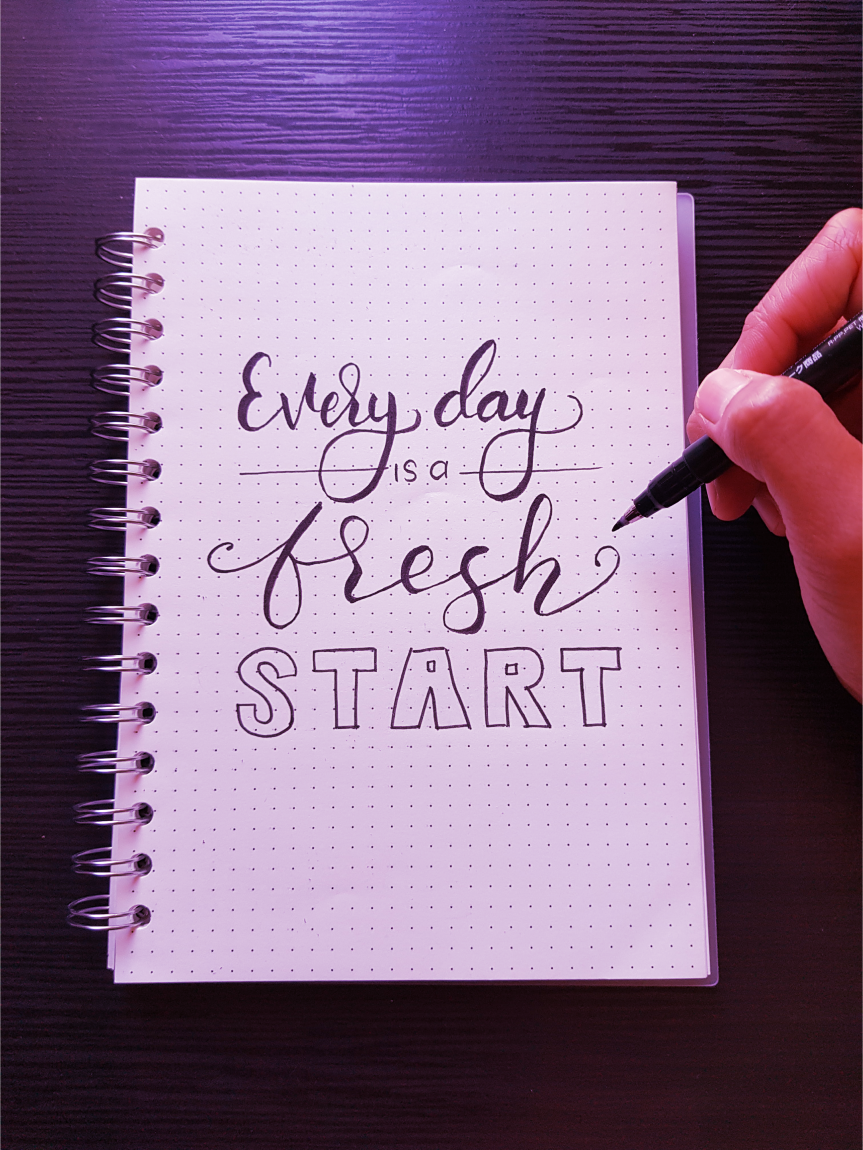Suggestions for a Successful Client Counsellor Relationship
Accessing counselling can seem like a tremendous effort especially when you do not feel mentally or physically strong. The fear that "it may not help" or having received a negative experience of counselling in the past may hinder the building of an effective client counsellor relationship.
This blog explores the various factors that should be taken into consideration when considering therapy.
What is Counselling?
I am no stranger to therapy from the client and the therapist side. In fact, my experiences of being a client (some negative, some positive) shaped the type of therapist I am today.
One of the questions that I get asked a lot as a therapist is "what is Counselling?"
This is a difficult question to answer as counselling is a very personal journey and can mean different things to different people. I guess the first place to start when looking at this question is in the origins of counselling itself.
Psychoanalysis and Person Centred Counselling
It can be argued that counselling and psychotherapy started with the work of Sigmund Freud in the 1890s and the development of Psychoanalysis. This school of thought suggested that a person who was experiencing personal difficulties should talk to a trained individual (a psychoanalyst) who is trained in interpreting the "subconscious" - that part of our Psyche that we are not aware of but influences what we do. If we take out the Oedipus complex (a child's feelings of desire for an opposite-sex parent) and the overtly patriarchal society of the time, could there be some truth in Psychoanalysis? I am certainly, at times, driven by thoughts that have me wondering "where did that come from?" and I can trace back some of my inherited behavioural responses to certain childhood events, some more traumatic than others.
Freud believed that it was the role of the psychoanalyst to analyse and interpret an individual's thoughts and actions as a result of their suppressed desires however in the 1950’s Carl Rogers (known as ‘The Father of Person Centred Counselling’) took a very differing view of counselling. He believed that the client had the answers they were seeking and just needed to become more self-aware. "Freud taught us about the unconscious, and the helpfulness of self-awareness, while Rogers's ideas have contributed to the concept of self-esteem.” (Kahn, E. 1998)
Rogers taught therapists to trust in the counselling process and to listen using what he termed as core conditions; Empathy, Unconditional positive regard and Congruence. By showing all of these qualities, the client cannot help but become more self-aware and change.
I have to admit to a certain bias towards Rogers "person-centred approach" having studied this in depth. On my first day of training to become a therapist, I remember my tutor explaining humanistic and talking therapies and I remember thinking "how can you solve a person's problems by just listening to them?" Looking back this was such a simplistic view to hold - little did I know how complex and how difficult it is to give all clients unconditional positive regard and to respect their autonomy, journeying alongside them for as long as it takes. Although I do not completely adhere to the "one therapy fits all clients" approach, I have witnessed and experienced client's change when the core conditions in the therapeutic relationship are right.
Cognitive Behavioural Therapy
Cognitive Behavioural Therapy, or CBT is probably one of the most well-known forms of counselling. It is widely used in the NHS and is empirically proven to help treat disorders such as anxiety, OCD, depression and eating disorders. Beck (1960) originally studied Psychoanalysis and through his experiments with treating depression, realised that an individual's thoughts had the ability to affect the way they perceive an event and as a result, change behaviour and feelings. Negative and unrealistic thoughts can cause a person to adopt unhealthy behaviours and thoughts which reinforce their negative view of their world and do not encourage positive change. By working to recognise these thoughts, behaviours and feelings (challenging them and eventually reworking them to become more positive,) a person can become more resilient and confidently recognise when their mental health may need some attention.
Years before I became a therapist, I suffered the sudden death of my Mum, which resulted in complicated grief wrapped up in panic attacks, agoraphobia and anxiety. I struggled to understand my grief and felt like I had lost control of my mind as the panic attacks felt constant and left me exhausted.
Cognitive Behavioural Therapy (CBT) and the gentle prompting of my therapist as we worked through the CBT worksheets, gave me the tools I needed to "rewire" my brain. It helped me to build the mental strength and knowledge to recognise when my mental health was low, and when I was more prone to panic attacks. Such self-awareness was in the long term invaluable to my mental health but it was by no means as simple as this paragraph makes it sound!

... counselling, in the UK, began as a response to the first and second world wars.
The Development of Counselling within the UK
We have so far explored the more "professional" route in the development of counselling, however counselling, in the UK, began as a response to the first and second world wars.The consequences of war affected not only the economy but also families, as family breakdown (the result of men being away for long periods of time and women becoming more independent as they took on "men roles"), psychological trauma, financial burdens all highlighted the need for people to be able to "talk" though their experiences.
This role was first taken on by church pastors who recognised that people were "changed" after the war and that talking to people about their experiences offered individual's a way of processing trauma and being able to carry on once war had ceased. This represents the early beginnings of recognising that people have a mental health which can be affected by life events.
What is Mental Health?
When talking to my relatives about their experiences of War, I was surprised at how many people said "well you just got on with it" in relation to what they witnessed during the war.

How do you come to terms with houses being blown up and searching the rubble for neighbours that you know will not have survived? I remember my grandmother saying how different men were when they returned from war, she said "they did not talk about what they saw while fighting, and we never asked but they were not the same person they were before". Families in these situations witnessed first-hand the impact of declining mental health and were often having to manage undiagnosed conditions such as Post-traumatic stress disorder (PTSD) with no understanding or treatment options of these mental health conditions.
Now we know different. A person’s mental health is an actual thing not just a concept, yet many people still struggle with the notion of having a mental health, believing it to mean that they suffer with mental health problems, but this is not the case.
In many ways mental health is just like physical health, everybody has it and we need to take care of it, in the same way we look after ourselves physically.

If I start to notice that loud noises are hurting my head or my eyes feel tired, I know that I may be getting a migraine. I might have to go to bed for a day and take medication. I may also need to take it easy for a couple of days while I get back to full physical health. The same can be said for my mental health. I know that as a person I am prone to excessive worrying and anxiety. Normally I manage just fine, but sometimes I notice that my thoughts are more negative than normal or I will keep seeking reassurance from those around me. It is then that I need to use the CBT tools and strategies I have learnt, to work on my mental resilience, and choose to step out of the anxiety cycle that I am in. In the same way that medication for a migraine may take some time to work and it will be a few days before I feel physically well, the same happens with my mental health, and it may be a few days before I am ready to take on the world again.
Good mental health means being able to think, feel and react in the ways that you need and want to life a full life. We can recognise when our mental health may need working on when we begin to feel, act or think in ways that are not helping us to live life the way we need to.
Resilience

One of the ways we can help maintain good mental health is to work on our resilience.
Merriam-Webster defines resilience as "an ability to recover from, or adjust easily to misfortune or change." Building resilience empowers individuals to take more control over their own lives, taking responsibility for what they can control and developing an inbuilt confidence in overcoming challenges.
What does resilience look like? people who develop resilience are more able to adapt when they experience change in their lives, whether it’s something as simple as a change of appointment date or something as life changing as a bereavement. Those with high levels of resilience take in what has happened to them, process, and then begin asking questions such as what's next for me?
Those who do not have resilience may struggle with anxiety, become overwhelmed with life and may feel stuck as they are unable to make decisions or adapt to a new situation.
So, in this context we return to the original question - "what is counselling" and how can it help?
Counselling is a tool that, if used in the right way, can help build resilience and ensure that people have the right strategies to be able to manage life.
Counselling is not just for crisis management but can offer many benefits, helping people to find a space where they can be authentic, grapple with their life questions and hopefully find their own answers, while being supported by a professional.
Benefits of Counselling
When to Seek Counselling

Many of my clients have waited, some many years, before they have built up the courage to attend counselling, and I use the words "built up the courage" deliberately because this seems to the journey that many individuals take.
Talking this through with one of my clients, highlighted the barriers that many face when they realise they need support that may include counselling.
This particular client had been struggling with a fear of death after a family bereavement for over 10 years, but had put off counselling because at the time of this loss they were looking after everyone else - then time passed…the thought of bringing up painful memories was too much and besides the rest of the family seemed to be "getting over it".
My client tried to carry on.
Over time however panic attacks developed and an acute fear of becoming sick and dying surfaced – which became crippling.
My client finally made an appointment for counselling after being signed off sick from work and realising that they were not doing ok anymore. One of the reasons given for not seeking support sooner was that there was a stigma attached to counselling creating concern that seeking help might be viewed as weak by colleagues, family and ultimately themselves.
Too often counselling is ‘put off’ until there is no alternative and an individual hits crisis point.

Counselling is not just for the severe life events such as death or trauma, it is also a valuable tool in helping us figure out or work on our identities, self-esteem, resilience, existential questions such as "why I am here?", stress, long term unemployment and relationship problems.
If counselling support is sought sooner, seen as a healthy and positive option for a healthy life - then it is often possible to prevent long term mental health issues such as anxiety, low mood or depression.
What Should I Look For in a Counsellor?
Finding the right counsellor can be a tricky process and perhaps creates an unnecessary barrier to seeking support.
If like me, you have spent many hours looking for a counsellor but instead ended up confused as to what is a ‘good counsellor’, the following considerations may be helpful

Some of these may be conscious considerations such as cost, location, type of counselling offered but there are also some other aspects that should be considered just as important, which many potential clients are not aware of:
Qualifications
Unfortunately, Counselling is not a regulated profession. What this means is that there is no legal requirement level or restrictions in place for the counselling profession. An individual could take a one-day course and set up a counselling practice with very little practical or theoretical knowledge of what being a counsellor really entails. So ensuring that your counsellor is appropriately qualified is essential. – Do not be afraid to ask to see your therapist’s qualification.
Affiliated Professional Bodies
As there is no legal requirement for the counselling profession in terms of qualifications or level of practice, organisations such as the BACP (British Association for Counselling and Psychotherapy ), HCPC (Health and Care Professionals Council ) and BABCP (British Association for Behavioural and Cognitive Psychotherapies), have taken on the role of self-regulation. Counsellors who join these recognised bodies have met a certain level of training and qualification and have undergone personal therapy and training placements to learn and develop their skills. When seeking a counsellor, it is good practice to make sure that they are part of a recognised professional body. – Again please ask for the details of their registered professional body and check their affiliation using the links to the professional bodies above. No reputable therapist would question such an enquiry.
.Ethical Framework
Counsellors who are part of a recognised professional body have also agreed to abide by a code of ethics and standard of working. This is important because it provides guidelines and ways of working that ensure the client receives a professional high standard of service. The standard of service that a client should expect can be found in the BACP Ethical framework guide.
As a client you should expect to see these principles modelled by any therapist that you choose to work with:
Being Trustworthy
As a counselling client you may feel vulnerable especially as you are talking about events/feelings/experiences that can be very painful. It is especially important that a client feels able to trust their counsellor and your counsellor should demonstrate this by ensuring your confidentiality is maintained during and outside sessions.
Respecting Your Autonomy
This means that your counsellor should be directed by you in the sessions that you have together. You are the expert in you and counselling should not be about a counsellor telling you what you need or what you should do. A counsellor's role is to support the client in finding their own answers /way forward.
Beneficence
This means your counsellor should be committed to ensuring that they act within the best interests of you as their client. They should be mindful of working within the limits of their competence and provide a level of counselling that is within the training and qualifications that they have, for example a counsellor should not be offering Cognitive Behavioural Therapy (CBT) if they have not adequately trained and received a recognised form of qualification in this area of expertise.
Non-maleficence
This principle can be summed up as "do no harm". A counsellor should not be involved with or take part in activities that can cause harm to their clients. By this I mean that your counsellor is human, and like the rest of us they will experience life events such as death, family/relationship issues, anxiety and all of these can affect their ability to competently counsel someone. Counsellors MUST have access to their own supervisor (a supervisor should be someone that is experienced in the world of counselling, having been a counsellor for many years, and has also undertaken an adequate qualification in supervision) and have regular sessions with them to ensure that they stay on top of their own mental health and work through any issues that may affect their ability to counsel effectively.
Counsellors should also be undertaking Continual Professional Development (CPD).
A counsellor is never finished with learning, there is always studying, reading and thinking to be done. This is an important aspect of being a good counsellor. By making sure that their skills are up to date and learning about new types of counselling available, this shows that a counsellor is committed to providing their clients with a professional and relevant service.
As a practicing counsellor I believe that there is another area of professionalism to consider, within the wider community. As a therapist, if I am going to uphold all of these ethical principles, I also have a responsibility to ensure that my conduct and the activities that I engage in, at all times, do not undermine my profession as a counsellor.
To make this clearer, I should display the same qualities and behave in the same way whether I am in the counselling room or doing my weekly shop.
Justice
This principle is referring to the fair and impartial treatment for every single client that a therapist works with. It is important to understand what this principle means. It is not referring to equality in the sense that everyone should receive the same treatment from their counsellor because clients may need different types of therapy, what it is referring to is that the counsellor should not enter a counselling room with pre-conceived judgements or opinions that influence the level of service that they give to a client. All clients are entitled to receive the best, professional service regardless of their background, occupation, race or gender.
Self-Respect
This can also be termed self-care. A good counsellor will recognise that they are giving out a lot to each client and this can result in becoming burnt out. Professional burn out can result in client’s receiving a lower standard of care and the counsellor can also find themselves suffering with mental health concerns. To avoid this, a counsellor should engage in activities that help them maintain a good physical and mental health. They should also be aware of when they may need to seek extra support in the form of personal counselling to work through any concerns that may be affecting their ability to counsel effectively.
Personal Connection
I have had many clients who have told me that they have tried counselling in the past, but felt that they did not "click" with their counsellor or felt "judged and told what to do". Sadly these are not isolated incidents and can put people off from engaging in counselling at another point in their lives.
It is important to ask yourself before you try to find a counsellor: What are you looking for?
Is there anything that would make you uncomfortable from the beginning?
When I was looking for a therapist, the counselling room was a particularly important factor to me. I had received some counselling in a very clinical and sterile looking room and it was very difficult for me to relax and build a relationship with my counsellor and to be honest I didn’t really try. I was never fully comfortable in the environment so the next time I wanted to seek counselling I knew the places that I did not want to go to, which narrowed my search. All counsellors have their own ways of working and it is important to acknowledge that finding the right counsellor for you may take time.
Honesty
is an important quality when looking for the right counsellor. That first meeting with a counsellor is as much for you, the client, to ask questions and see whether you feel comfortable, as it is for the counsellor to see whether they have the right skills and tools to be able to support you through the counselling process.
Do not be afraid to speak your mind and share your thoughts with a counsellor, if you feel that you do not “click” with them or you would like to meet with another counsellor before you make a decision on who you would like to work with. Professional and ethical counsellors will not feel inconvenienced by this because we understand the importance of finding the right counsellor.
All of our counsellors meet the above requirements,
please get in touch to talk more if you are looking for a therapist.
Counselling Techniques
Counsellors may hold qualifications in one particular counselling technique.
For example Humanistic counselling may use Person-Centred Counselling or “talking Therapies.” Cognitive Counselling may focus on techniques such as Cognitive Behavioural techniques and Psychodynamic Therapy may use techniques such as dream analysis.

Counsellors will often obtain training and qualifications in many different types of counselling techniques and these become what are termed as “Integrative Counsellors”. This means that a counsellor is able to work with a client using many different therapeutic techniques.
This is good news for the client as a counsellor is able to tailor their counselling approach to the needs of their client and offer different types of counselling rather than just using one type of counselling for every single client.
CBT
Cognitive Behavioural Therapy
CPT
Cognitive Processing Therapy
DBT
Dialectical Behaviour Therapy
REBT
Rational Emotive Behaviour Therapy
ACT
Acceptance and Commitment Therapy
EMDR
Eye Movement and desensitisation reprocessing
Systemic Family Therapy
Used to help families/couples to learn to better communicate and work through difficult situations.
Gestalt Therapy
Looks at exploring the client’s non-verbal and body language and to accept responsibility for feelings and actions
Transactional Analysis
Looks at social communication and transactions that take place.
Solution focused brief therapy
Focuses on a particular concern to promote positive change rather than looking at the past.
Art Therapy
Using creativity as a way of exploring a client’s world and concerns.
Colour Therapy
Using colour to work with and understand the body’s inner vibrations.
Dream Analysis
Using dreams to explore a person’s unconscious.
Music Therapy
Using music as a form of self-expression.
Research has concluded that some counselling techniques statistically provide more success when used to treat certain types of conditions, for example Panic Disorder, Obsessive Compulsive Disorder, Anxiety and Depression can be helped using CBT techniques. CBT however does focus on the here and now and in particular looks at thought patterns that influence behaviour. In my experience as a counsellor, the underlying root cause of many of these type of conditions stems from past experiences and situations, therefore it can be important to consider using other techniques such as talking therapies as well as CBT techniques to allow you to explore all of these areas.
When is the Right Time to Access Counselling?
In my opinion counselling should be readily available in school and employment settings as it can help maintain good mental health and also be used as a preventive tool to stop young people, managers and employees developing more complex mental health concerns such as anxiety.
In fact, counselling should be readily available in any setting as this may help reduce the stigma surrounding mental health.
Counselling can be sought at anytime and for any reason, but the following are some examples when it is especially useful:
Trauma
Grief
Relationship concerns
Long term sick/unemployed
Stress
Identity/self esteem
Abuse
Existential Crisis
Often this happens after experiencing a loss
Addictions
Emotional support
Anxiety and Depression
Help with recognising emotions
Communication